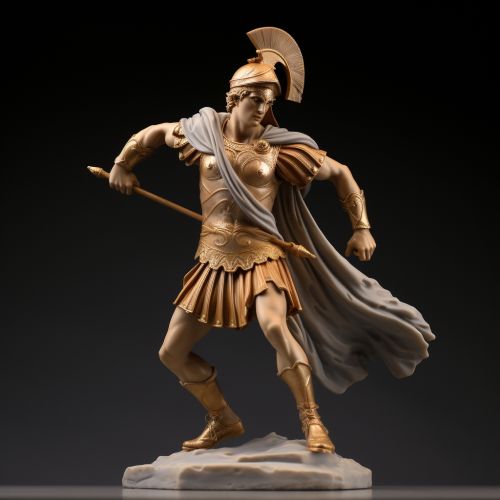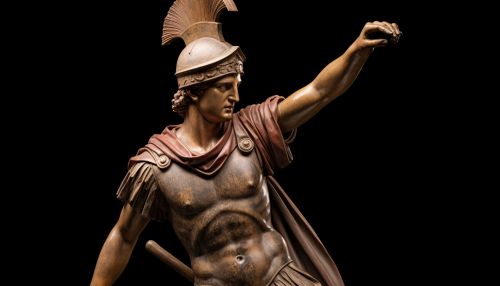Pyrrhus
Early Life
Pyrrhus was born in 319 BC, the son of Aeacides and Phthia, a Thessalian woman. He was a second cousin of Alexander the Great, who was on his mother's side. His father was dethroned when Pyrrhus was still an infant, and he was of the royal line of the Molossian tribe, one of the tribes in Epirus.
Rise to Power
In 297 BC, Pyrrhus was proclaimed king of Epirus. His early reign was marked by a series of military campaigns, as he sought to expand his kingdom and establish himself as a major power in the region. His most notable conquest was the city of Corinth, which he captured in 295 BC.
Pyrrhic Wars
Pyrrhus is perhaps best known for his military campaigns in Italy and Sicily against the Roman Republic and the Carthaginians, respectively. These campaigns, which took place from 280 BC to 275 BC, are collectively known as the Pyrrhic Wars.
In 280 BC, Pyrrhus invaded Italy, responding to a plea for help from the city of Tarentum, which was under threat from the Romans. Despite winning several battles, Pyrrhus's victories came at a heavy cost, leading to the term "Pyrrhic victory", which refers to a victory that inflicts such a devastating toll on the victor that it is tantamount to defeat.
In 278 BC, Pyrrhus turned his attention to Sicily, where he fought against the Carthaginians. Despite initial successes, Pyrrhus's campaign in Sicily ultimately ended in failure, and he was forced to return to Italy.
Later Life and Death
After his campaigns in Italy and Sicily, Pyrrhus returned to Epirus, where he continued to rule until his death in 272 BC. He was killed in a street fight in Argos by an old woman who dropped a tile on his head from a rooftop.
Legacy
Pyrrhus's legacy is a mixed one. On one hand, he is remembered as one of the greatest military tacticians of his time, and his concept of a "Pyrrhic victory" continues to be used to this day. On the other hand, his relentless ambition and constant warfare ultimately led to his downfall and the decline of his kingdom.
See Also


